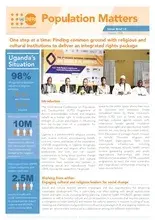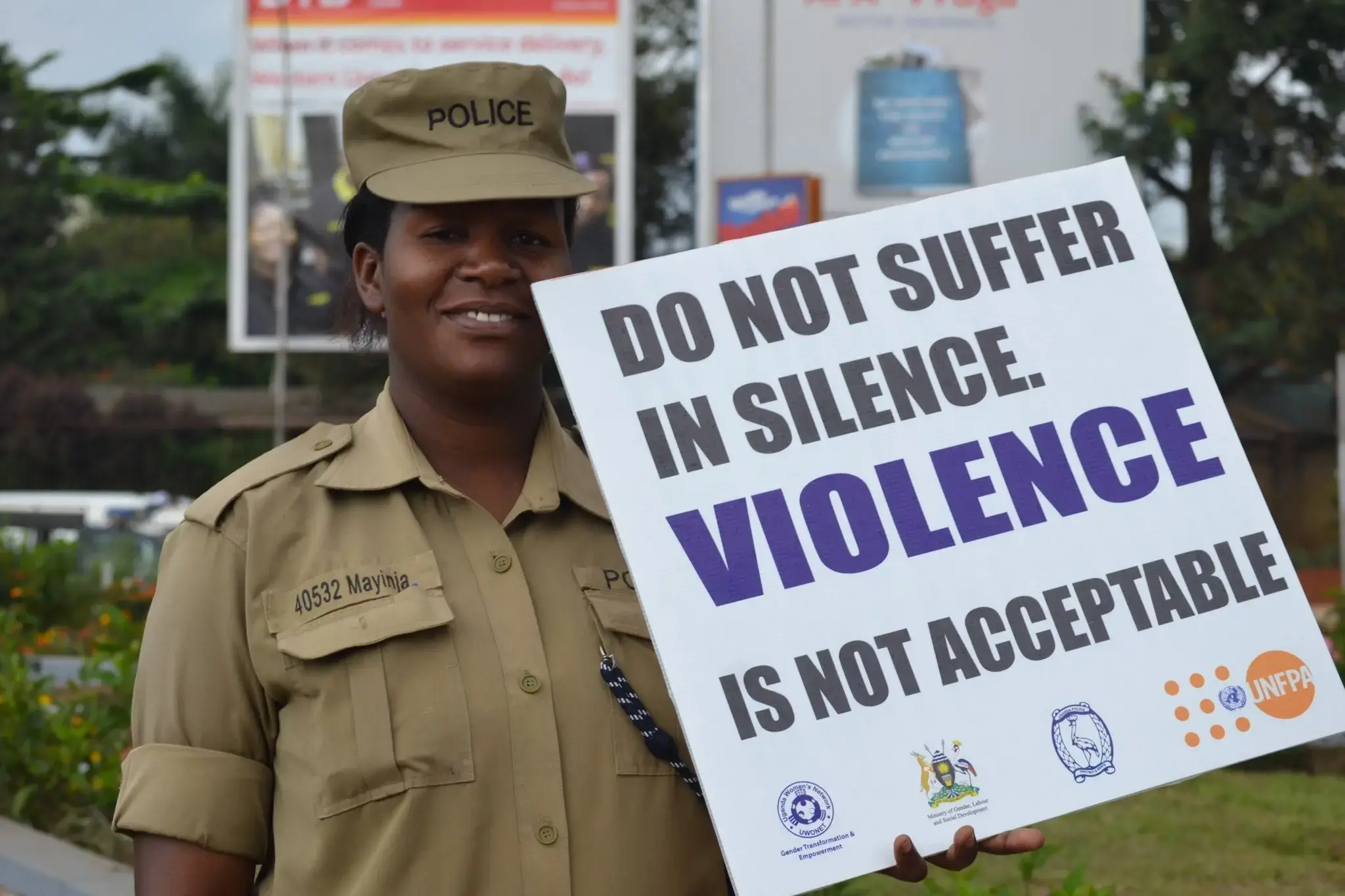“In the beginning I did not know how to save but currently I am able to save the money I get from my business,” says twenty-year-old Gift Parren, a mother of one living in Village B in Ataabo, Pakele Town Council Adjumani district.
Gift is one of the members of “Masikini”, a Youth Savings and Loan Association (YSLA) that has provided economic security for girls to fall back on and recover during the COVID-19 pandemic and lockdown. The YSLA groups are part of the community engagement strategies used by CARE International with support from UNFPA and funded by the Government of Denmark/DANIDA under the Women, Youth, and Adolescents Rights & Empowerment Programme (WAY).
The YSLA groups are comprised of up to 30 young girls and women aged 15-19 years. The clubs provide very vulnerable young girls with access to sexual reproductive health and rights and gender based violence information while promoting savings, entrepreneurship and income generation. Members are informed of issues of sexual reproductive health and rights (SRHR) including family planning, and gender-based violence prevention and mitigation, as a way to empower them to access services and are concurrently trained on how to save and start small businesses to empower them economically.
Lack of economic independence can be a barrier to reporting and leaving abusive relationships and may lead to forced and early marriages for young girls and survival sex work. Access to economic opportunities such as those availed to the YSLA groups helps women to break free of the cycle of dependence, empowers women and girls and promotes their rights and choices.
“From the time we started saving, we have been able to improve on our saving skills and to understand the dangers of gender based violence with the knowledge we get from the YSLA trainers,” said Aweya Zaitun, the chairperson of the group.
“In our last saving cycle, we were able to save up to Uganda Shillings 3,621,200 (USD 1,000) which we gave out to members as loans and got Uganda Shillings 218,200 (USD 60) as interest.” The group members were then able to start and grow individual businesses after receiving their savings from the group.
Zaitun narrates how she first received her savings of Shillings 250,000 (USD 69) and social fund (a form of micro insurance) of Shillings 30,000 (USD 8), and used the money to buy 15 sacks of charcoal which she sold in and got Shillings 450,000 (USD 125). I then used the same money to buy one sack of sugar, one sack of onions and a jerrycan of cooking oil which I currently retail,” Zaitun said.
“Masikini YSLA” has not only changed the economic status of its members but their social status as well as information levels on SRHR/GBV. The group attributed this to the support of a trained YSLA agent who conducts SRHR/GBV sessions to the group every time there is a saving meeting.
As of November 2020, a total of 300 YSLA clubs for highly vulnerable young girls exists, reaching about 9,000 girls across 10 districts of West Nile and Northern Uganda targeting both refugee settlements and host communities. YSLA groups form a part of the larger and more comprehensive Women, Youth, and Adolescents Rights & Empowerment (WAY)Programme. The programme is funded by the Government of Denmark/DANIDA and is coordinated by UNFPA Uganda, and implemented through partners.
Compiled by: Lisa Hartwig (UNFPA) and Shaban Said (CARE, DPA – Adjumani)





